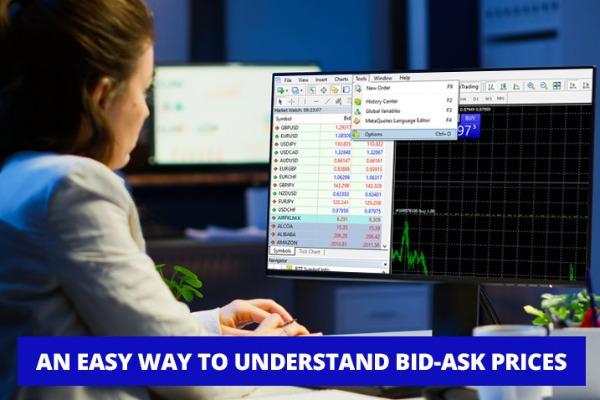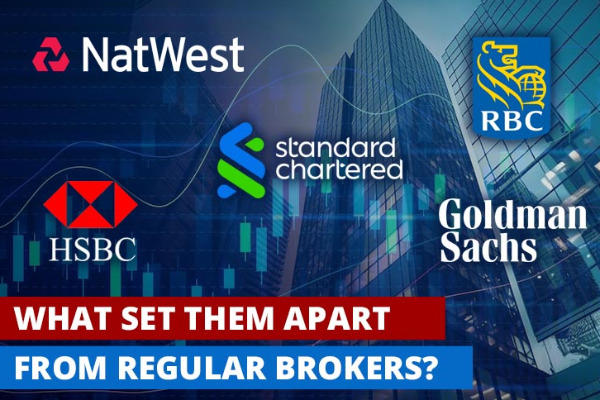Trading stock CFD has been a popular choice for many years. But for those who are just about to try, is it a good investment or just a waste of time?

There is more than one way to gain profits from an asset. Although most traders prefer a more straightforward step, others might choose another alternative method. One of the most popular ways to do it is CFD trading.
In short, a contract for differences (CFD) is an agreement between an investor and a CFD broker to exchange the difference in the value of an asset within the contract time frame. CFD gives traders plenty of instruments to choose from, but one of the most popular ones is stock CFD trading.
Stock CFD has plenty of benefits, which makes it an interesting investment. Those are:
- Allows One Platform Access: Traders can access many different kinds of stocks through one platform.
- It's a Leveraged Product: Provides higher leverage compared to traditional trading.
- Good for Hedging: CFD trading has the flexibility to go long and short, making it a great hedging tool.
Other than the benefits above, what else should we know about stock CFDs?
Contents
Deeper Understanding of Stock CFD
In a CFD market, traders never actually own the underlying asset. Instead, they are only speculating on where they think the price will move. For example, a trader can speculate whether the price of DJIA will go up or down without actually buying said asset.
Essentially, traders can use CFD assets to guess whether the price of a security will fall or rise. If the trader that has purchased a CFD sees the asset's price increase, they will offer their holding for sale. On the other hand, if they believe that the asset value will decline, a short position can be placed.
To close the position, the trader must purchase an offsetting trade. The net difference between the purchase and sale prices is netted together, and the gain will be settled through their brokerage account.
Then, what about stock CFD? Stock CFDs are CFDs assets traded specifically on the shares of publicly listed companies. When a trader decides to open a position with stock CFDs, they agree to trade the differences in the price of the company's shares between the contract time frame they agree upon.
Remember that trading stock CFDs is different from buying a company's shares since the trader doesn't own the shares.
Consequently, a lot of traders might wonder whether a stock CFD is a great investment or not. Some might believe that CFD is not suitable for long-term investment because it tends to incur high fees if it is held for long periods.
However, they can be a great alternative for short-term investments. Aside from that, trading stock CFD offers plenty of other benefits for traders, such as:
1. One Platform Access
Plenty of stock CFD providers give access to the world's major markets. That means, traders can gain access to a lot of different kinds of stocks through one platform. Not to mention, traders will be granted around-the-clock access. This allows them to trade CFD on a wide range of worldwide stock markets, anywhere, anytime.
2. Leverages
Stock CFD is a leveraged product. It provides higher leverage compared to traditional trading. The standard leverage in the CFD market is different according to the regulations. It can range as low as 3% (30:1 leverage) to 50% (2:1 leverage). With lower margin requirements, CFD provides greater potential returns for traders.
3. Hedging
Stock CFD trading has the flexibility to go long and short, so traders can utilize it as a great hedging tool in the stock market. Not to mention, stock CFD is very cost-effective as it can be used to sell the portfolio prematurely to provide insurance against unwanted price movements.
A great number of traders use CFD to hedge their long-term positions. Should the value of the stock falls, they can still get some profits from the CFD market.
Stock CFD Trading Starter Pack
The most important thing about trading stock CFD is to find a great broker that caters to traders' needs. Here are a few things to look out for in a CFD broker.
1. Platform
Getting the right platform for trading stock CFD is the best way to enhance your experience. It is better to use a platform that is user-friendly and reliable. A lot of professionals might suggest trying MetaTrader 5.
It is very popular in the trading industry and provides a comprehensive range of features as well as tools. For a mobile trader, looking for platforms that are available on iPhone or Android might be better.
See also: Forex Brokers for Mobile Trading
2. Fees
Trading is more than just paying the bid and offer price; there are other additional fees to pay as well. For example, CFD brokerages make money through spreads, commissions, margin losses, and small fees for holding positions overnight called swaps. Not to mention, some brokers will also charge fees for deposits and withdrawals.
All of these fees can make trading costs bigger than most traders want. Thus, finding a broker with minimal fees in all aspects is important to reduce trading costs.
3. Regulation
There are hundreds of brokerages out there, but the safest way to start trading stock CFD is to make sure that the broker is properly regulated. Each regulation body governs a certain area.
For example, traders in the UK might want to find a brokerage that has been regulated by the FCA (Financial Conduct Authority). Meanwhile, Australian traders should find a broker that is regulated by ASIC (Australian Securities and Investments Commission).
See also:
4. Customer Support
Trading stock CFD might be confusing for first-timers. This is why a responsive customer support team is highly needed. Currently, plenty of brokers offer 24-hour live chat customer service. But it is also great to have a broker that offers multiple ways to contact their support teams such as e-mail, telephone, and social media channels.
Based on the criteria above, IC Markets is one of the best stock CFD brokers that has all factors above. This broker provides not only MT4 and MT5 but also cTrader. All of their platforms are available on desktop and mobile as well.
Regarding fees, the ASIC-regulated broker is widely known for its raw spread account. This is also available for stock CFD trading. Clients are provided with live chat, email inquiries, and phone calls to contact their customer service.
A broker with educational programs is the best kind of brokerage for beginners. In this case, ICMarkets isn't the only one with the best educational materials. There are other Australian brokers with the best features for beginners.

 Dedicated FREE FOREX VPS
Dedicated FREE FOREX VPS Free FOREX Virtual Private Server
Free FOREX Virtual Private Server MT4 Demo Contest, Get $500
MT4 Demo Contest, Get $500 Sign Up for an Account, Claim 60% Deposit Bonus
Sign Up for an Account, Claim 60% Deposit Bonus Free MT4/MT5 VPS 2024
Free MT4/MT5 VPS 2024 Send E-mail and Get Free Merchandise
Send E-mail and Get Free Merchandise $1K Refer a Friend Bonus for Pepperstone Pro clients
$1K Refer a Friend Bonus for Pepperstone Pro clients Maximize Your Earnings with 100% Deposit bonus
Maximize Your Earnings with 100% Deposit bonus Trade to Win, $5,000 Monthly Demo Contest
Trade to Win, $5,000 Monthly Demo Contest Claim 30% + 15% Deposit Bonus from LiteFinance
Claim 30% + 15% Deposit Bonus from LiteFinance











